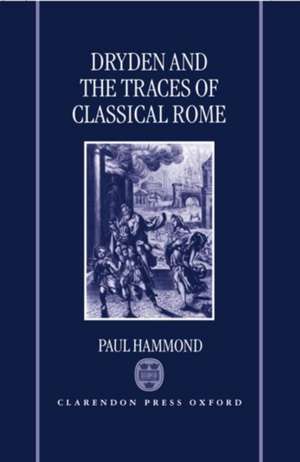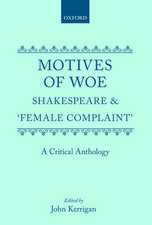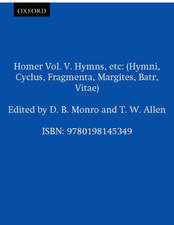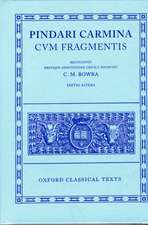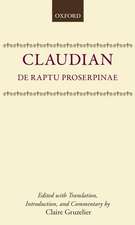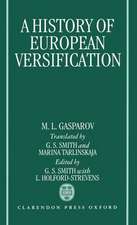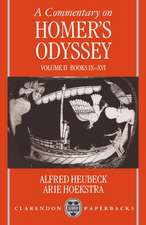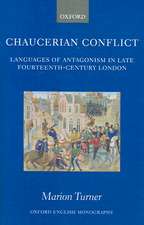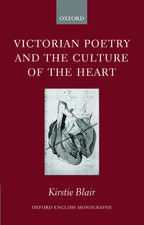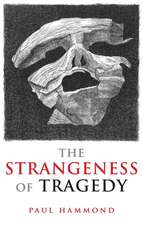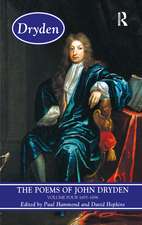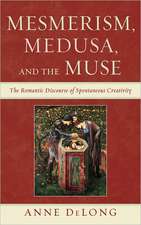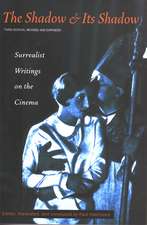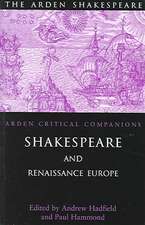Dryden and the Traces of Classical Rome
Autor Paul Hammonden Limba Engleză Hardback – 11 feb 1999
Preț: 992.45 lei
Preț vechi: 1509.48 lei
-34% Nou
Puncte Express: 1489
Preț estimativ în valută:
189.91€ • 203.07$ • 158.34£
189.91€ • 203.07$ • 158.34£
Carte tipărită la comandă
Livrare economică 07-14 aprilie
Preluare comenzi: 021 569.72.76
Specificații
ISBN-13: 9780198184119
ISBN-10: 0198184115
Pagini: 318
Ilustrații: 7 plates
Dimensiuni: 143 x 224 x 23 mm
Greutate: 0.55 kg
Editura: Clarendon Press
Colecția Clarendon Press
Locul publicării:Oxford, United Kingdom
ISBN-10: 0198184115
Pagini: 318
Ilustrații: 7 plates
Dimensiuni: 143 x 224 x 23 mm
Greutate: 0.55 kg
Editura: Clarendon Press
Colecția Clarendon Press
Locul publicării:Oxford, United Kingdom
Recenzii
Admirable in its range, sensitivity, and imagination.
His book couches its insights in Derridean terms, but its influence is likely to be felt far beyond the bounds of theory, for the peculiar tone of early neoclassical Britain has never perhaps been more sympathetically understood.
The personal and public use Dryden made of Latin in his poetry is extensively and painstakingly explored in this rich book, especially for the light thrown upon the way in which contemporary Englishness is conceputalised through references to ancient Rome.
Paul Hammond's account of the use of Rome by the seventeenth-century poet and the allusions which fall, sometimes misquoted in Dryden's work, provide a valuable addition to our understanding of Dryden the poet and his intellectual context.
This learned, engaging, and beautifully written book represents a giant step forward in our understanding of Dryden's deployment of Latin Literature.
His book couches its insights in Derridean terms, but its influence is likely to be felt far beyond the bounds of theory, for the peculiar tone of early neoclassical Britain has never perhaps been more sympathetically understood.
The personal and public use Dryden made of Latin in his poetry is extensively and painstakingly explored in this rich book, especially for the light thrown upon the way in which contemporary Englishness is conceputalised through references to ancient Rome.
Paul Hammond's account of the use of Rome by the seventeenth-century poet and the allusions which fall, sometimes misquoted in Dryden's work, provide a valuable addition to our understanding of Dryden the poet and his intellectual context.
This learned, engaging, and beautifully written book represents a giant step forward in our understanding of Dryden's deployment of Latin Literature.
